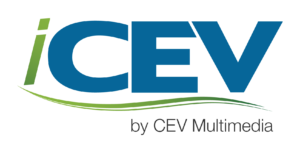This post is written by iCEV, a Platinum Level sponsor of the 2019 Advance CTE Spring Meeting.
 As we all know, industry sectors are unique. All have their own established history of hiring practices and methods for producing future workers. However, sectors are evolving and picking up on best practices learned from other industries. Industry certifications serve as one great example.
As we all know, industry sectors are unique. All have their own established history of hiring practices and methods for producing future workers. However, sectors are evolving and picking up on best practices learned from other industries. Industry certifications serve as one great example.
Several industries not traditionally driven by certifications have noticed how well the certification model is working in other sectors. They recognize certifications provide value to employers by assisting in recruiting qualified candidates who are able to hit the ground running in new positions and know that students are taking coursework at both the secondary and postsecondary levels preparing them for these careers. Additionally, certifications at these levels can encourage a student to pursue a career in the field.
For these reasons, industry has taken the initiative on building certifications to improve the recruitment and hiring process. However, not all certifications are equal in their value to the industry, employers and career seekers. Certifications offering the most value to all three stakeholders have three components in common:
1. Standards
As with all valuable certifications, it is important standards are created by an entity so respected and recognized that they can speak for the industry. The standards are the fundamental foundation certifications are built on and establish the measurables of the certification. This allows the certification to be portable to all employers in the industry. For example, Express Employment Professionals is a leading staff provider who works with thousands of businesses to place 556,000 career seekers annually. They know what businesses are looking for in employees and have the credibility to create comprehensive industry standards for several career fields.
2. Certification Administration
As industry leaders start the process of creating certifications, they often lack the foundation level knowledge of how to develop and administer a proper certification program. For a certification to be successful, it is important for it to be administered by an entity experienced with the tasks of certification exam creation and testing procedures. In addition, it is important for both employers and certification achievers that results are easily verified by qualified parties. Southwest Airlines, recognized by Fortune Magazine as one of the World’s Most Admired Companies for 22 consecutive years, has highly coveted standards for communication and customer service. When faced with the challenge of finding candidates who met their company’s soft-skills standards, Southwest realized this was a growing challenge for all companies. The idea of certifying students based on their skills and how it relates to the “Southwest way” was appealing to the company, but the logistics of managing a certification program was out of their scope of knowledge. Southwest then partnered with CEV Multimedia to administer the program due to CEV’s expertise in managing certification programs.
3. Promotion Through Education
A certification can be in the marketplace for years or even decades before employers immediately recognize its name or value. Even some of the most established certifications lack consistent recognition. The time span to gain universal recognition can be expedited by industry leaders promoting the certification WHILE certification achievers are proving the value of the certification on the job. For example, for Elanco, an industry leader in animal health, creating certifications results in a “value-beyond-product” to their customers, from veterinarian offices to pet stores to production facilities. Elanco makes it part of their mission to educate customers on the value of the certifications and how the certifications can assist in hiring qualified candidates. By helping their customers create a pipeline of qualified employees, Elanco demonstrates their investment in not only seeing the whole industry succeed but in seeing a local veterinarian and business owner succeed, as well. Promotion through education is an ongoing process, and the work is never done. As more certification earners enter the workforce with certifications and prove value to an employer, certifications gain recognition.
There is no doubt that certifications if created in an exemplary manner, create value for job seekers, employers and entire industry segments immediately upon inception.
iCEV currently tests for 14 industry-recognized certifications, and over 16,000 individuals have earned certification. To learn more, please visit http://www.icevonline.com/certifications.
